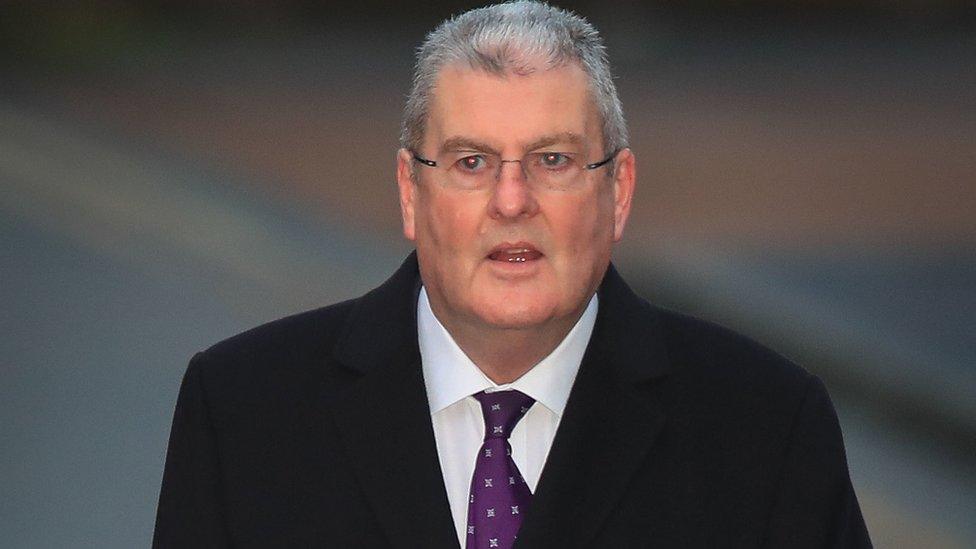Hillsborough trial: Jury told they cannot 'solve' Hillsborough disaster
- Published
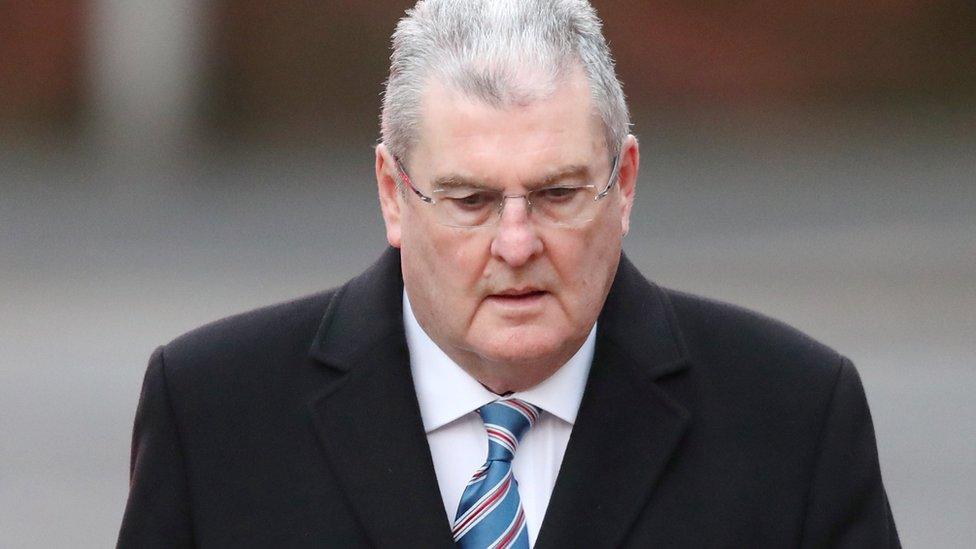
Former Sheffield Wednesday secretary Graham Mackrell is of "entirely good character", the jury heard
The jury in the Hillsborough disaster trial should not try to "solve" the tragedy and has been warned not to "translate heartbreak and sadness into a conviction", a court heard.
Former Sheffield Wednesday secretary Graham Mackrell's barrister made the comments in his closing speech.
Mr Mackrell, 69, denies a health and safety offence at Preston Crown Court.
Former match commander David Duckenfield, 74, denies gross negligence manslaughter of 95 people.
Jason Beer QC said Mr Mackrell was a man of "entirely good character" and the jury were being asked by the prosecution to "change someone from being a law abiding person to a criminal".
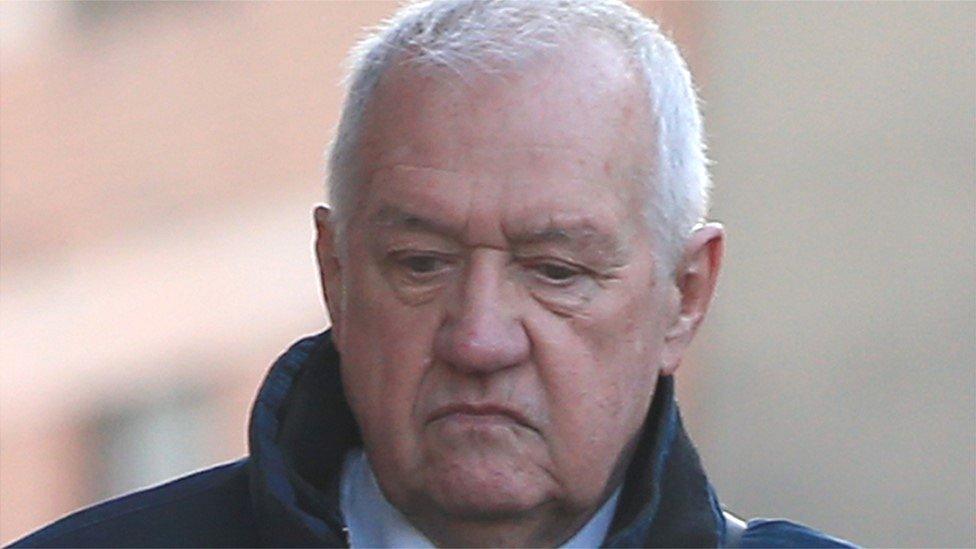
Match commander David Duckenfield denies the gross negligence manslaughter of 95 people
He said there was an "elephant in the room" and "an enormous temptation for you as jurors to think 'I must do something to put things right, I must find someone responsible'".
He continued: "Please cast that temptation aside. Your job is not to solve the Hillsborough disaster but to consider the evidence before you."
The prosecution allege Mr Mackrell, as club secretary and safety officer, failed to take reasonable care over the number of turnstiles allocated to Liverpool fans.
Twenty-three turnstiles were allocated to 24,000 spectators at the Leppings Lane end of the ground and seven for 10,100 supporters with tickets for the West and North West terrace.
The court has heard those figures made it obvious a large crowd would build up outside the ground ahead of the fatal crushing that ensued in the terraces.
But Mr Beer said senior police officers involved in the planning for the match did not raise any concerns.
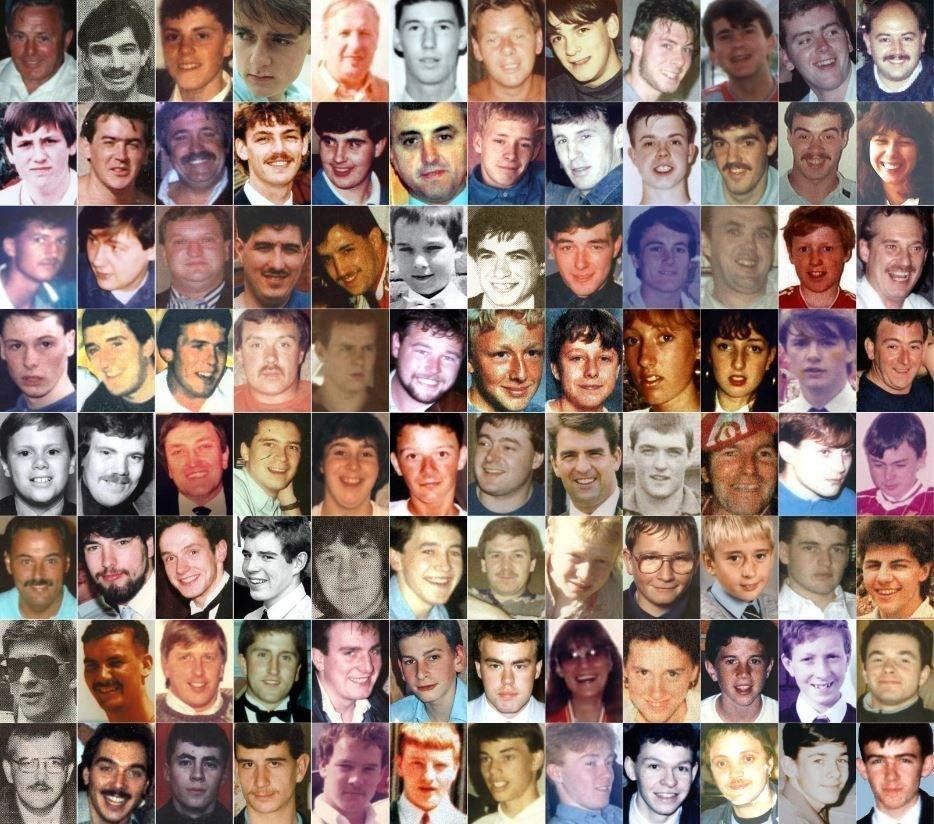
The people who lost their lives in the Hillsborough disaster
He said the previous match commander - former Ch Supt Brian Mole - took the decision to allocate that end of the ground to Liverpool fans and to close off turnstiles in another section of the stadium to segregate rival supporters.
The jury also heard two days before the match Supt Bernard Murray had inspected the ground and did not raise any issues.
Finishing his closing speech on behalf of Mr Duckenfield, Benjamin Myers QC told the jury they were being asked to convict a man who "acted to save lives in an emergency" and "tried to do the right thing".
He said Mr Duckenfield made the "right decision" in ordering the opening of exit gates at the Leppings Lane end of the ground because of overcrowding outside the stadium.
He said "the safe verdict, the fair verdict and the proper verdict in the case against David Duckenfield is not guilty".
- Published18 March 2019
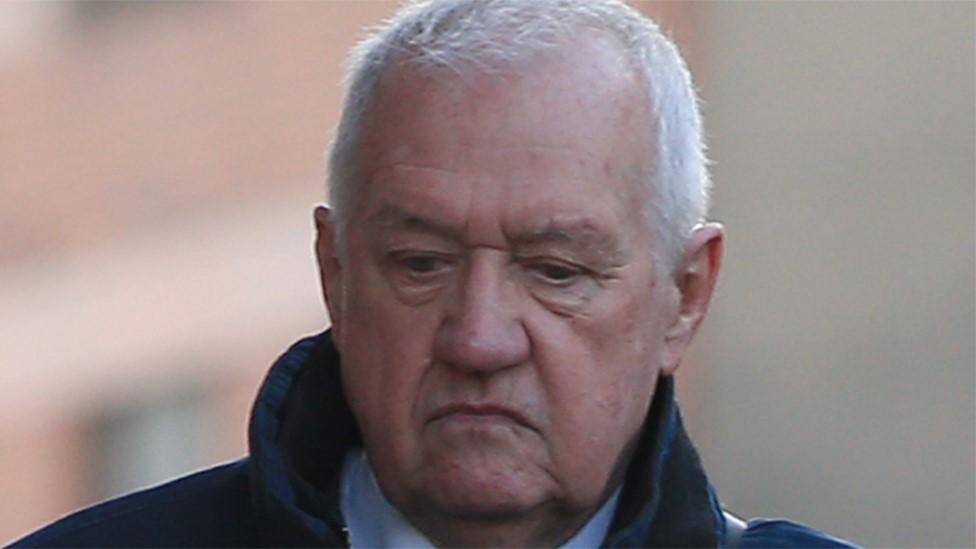
- Published15 March 2019

- Published14 March 2019

- Published13 March 2019
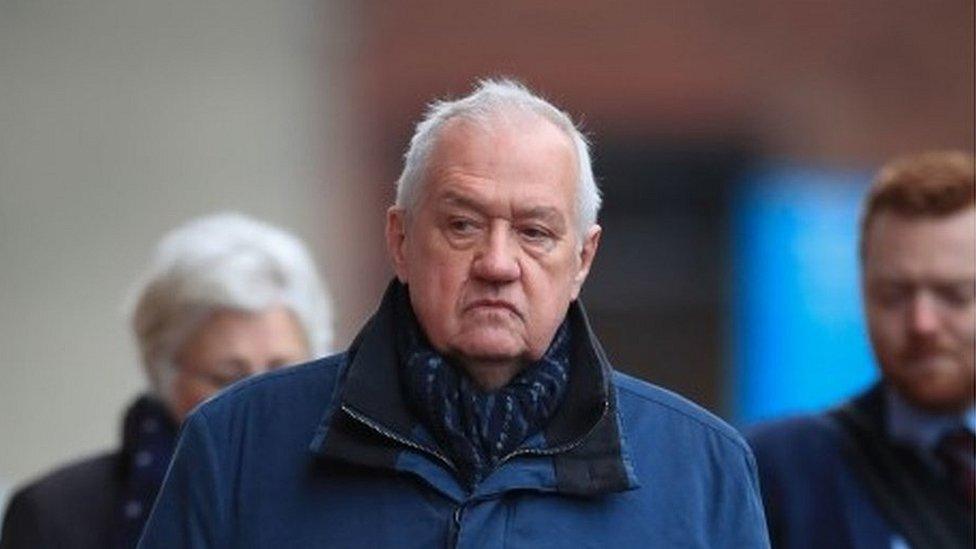
- Published5 March 2019
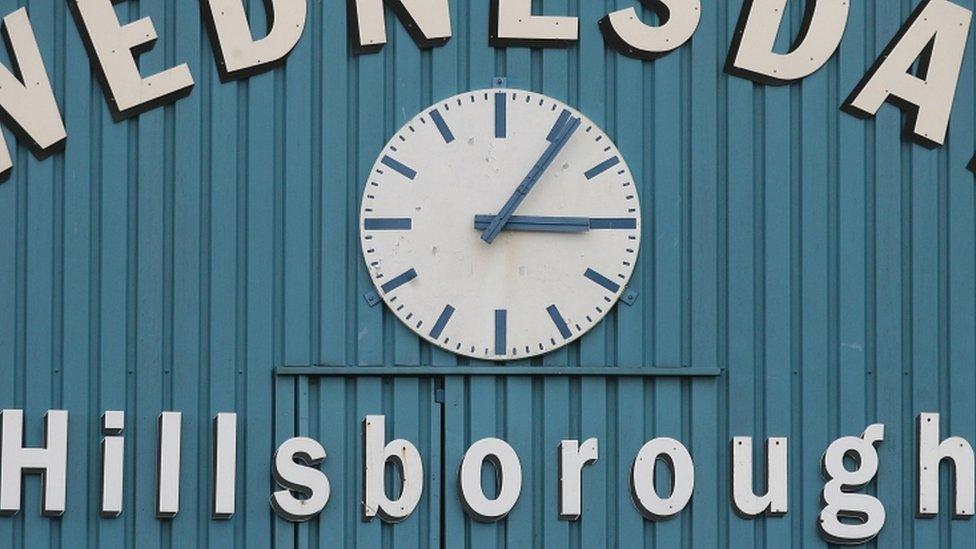
- Published23 January 2019
